Noun identification Normal Worksheets for Ages 4-7
4 filtered results
-
From - To
Explore our engaging Noun Identification Normal Worksheets designed specifically for children ages 4-7! These worksheets make learning fun and easy, helping young learners recognize and understand nouns in various contexts. With vibrant illustrations and age-appropriate activities, kids can practice identifying common and proper nouns through interactive exercises and thoughtful prompts. Whether at home or in the classroom, our worksheets promote early literacy skills while encouraging creativity and critical thinking. Ideal for preschool and kindergarten students, these resources support teachers and parents in fostering a solid language foundation. Dive into the world of nouns today and watch your child's confidence grow!
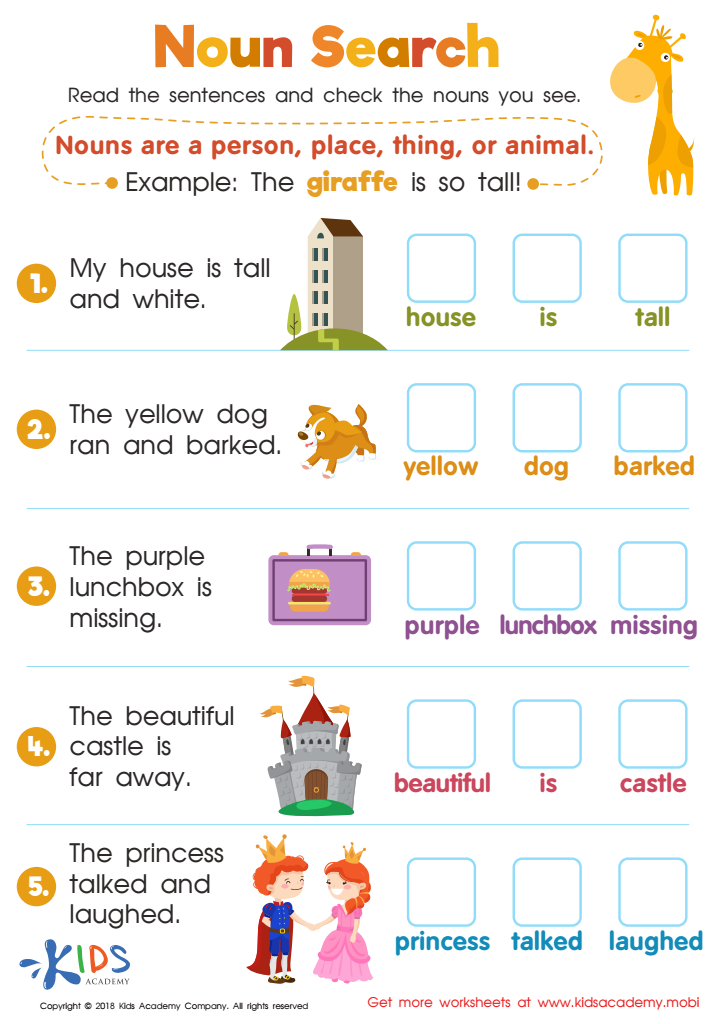

Noun Search Worksheet
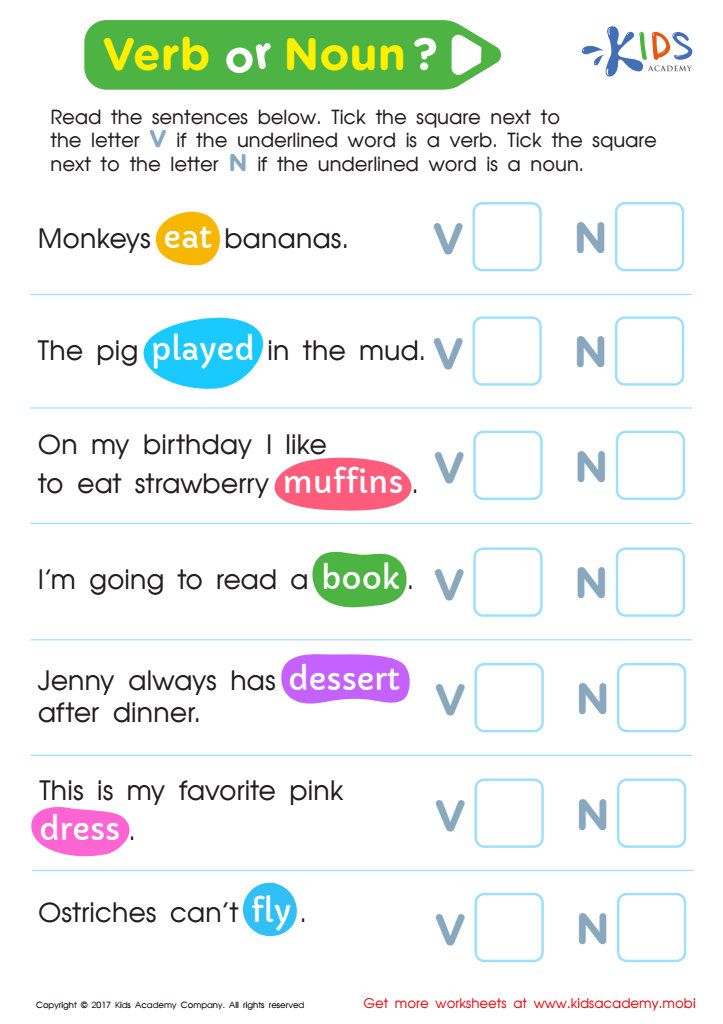

Verb or Noun Worksheet
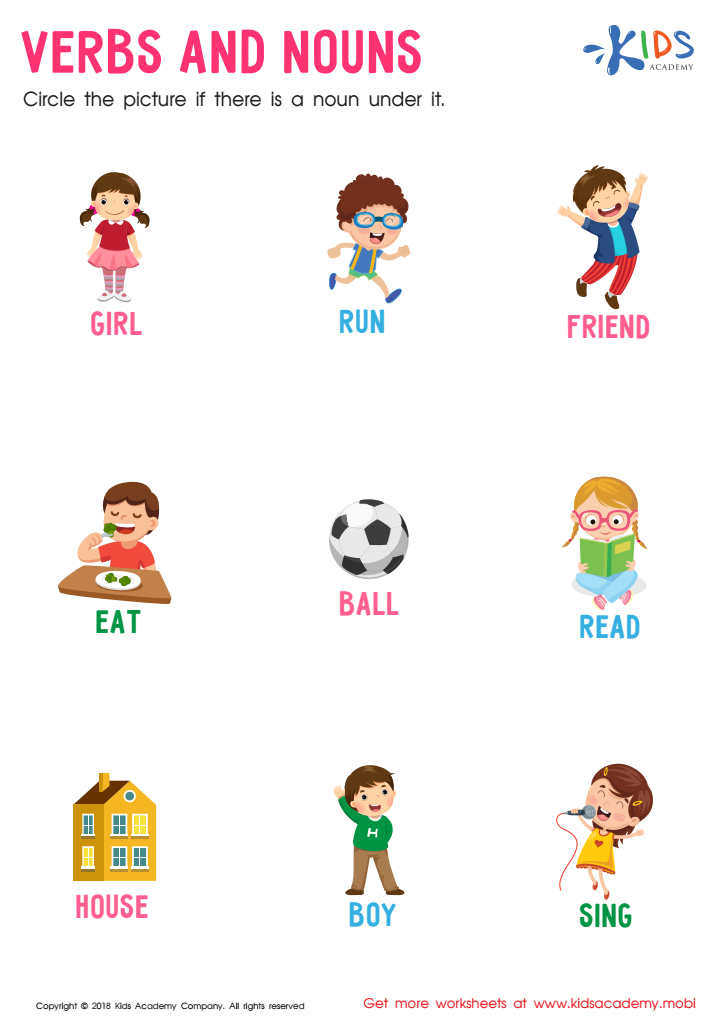

Verbs and Nouns Worksheet
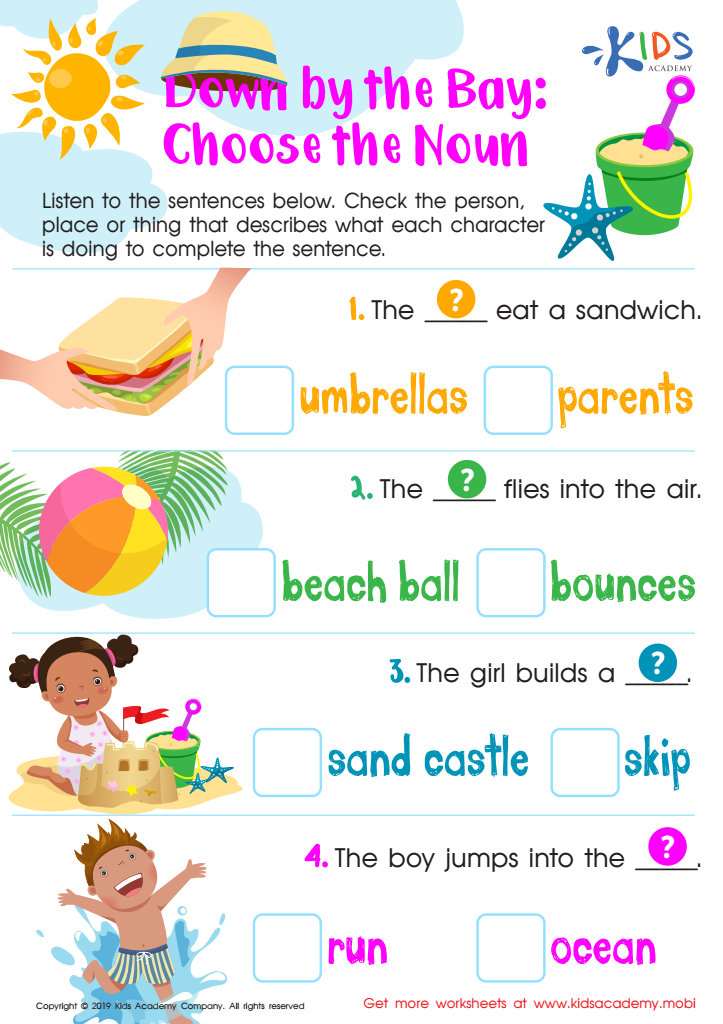

Down by the Bay: Choose the Noun Worksheet
Noun identification is a crucial foundational skill for children aged 4-7, as it lays the groundwork for effective communication and literacy development. At this stage, children are beginning to grasp the basics of language, and recognizing nouns—words that represent people, places, things, and ideas—is essential for their vocabulary growth. Understanding nouns helps children form sentences and express their thoughts clearly.
Parents and teachers should care about noun identification because it directly impacts a child’s reading and writing abilities. Mastery of nouns enhances comprehension when children read stories, as they can identify characters, settings, and objects within the narrative. This skill is also vital for building more complex grammatical structures as they progress in their learning.
Moreover, encouraging noun identification supports cognitive development and critical thinking. As children categorize and differentiate nouns, they enhance their ability to analyze and interpret their environment. Engaging children in noun-rich activities—like naming items around the house or during outdoor play—makes learning playful and interactive.
Fostering noun recognition not only prepares children for future academic success but also builds their confidence in using language, which is a gift that will benefit them throughout their lives. By prioritizing this skill, caregivers are contributing to a whole framework of communication and understanding.

 Assign to My Students
Assign to My Students



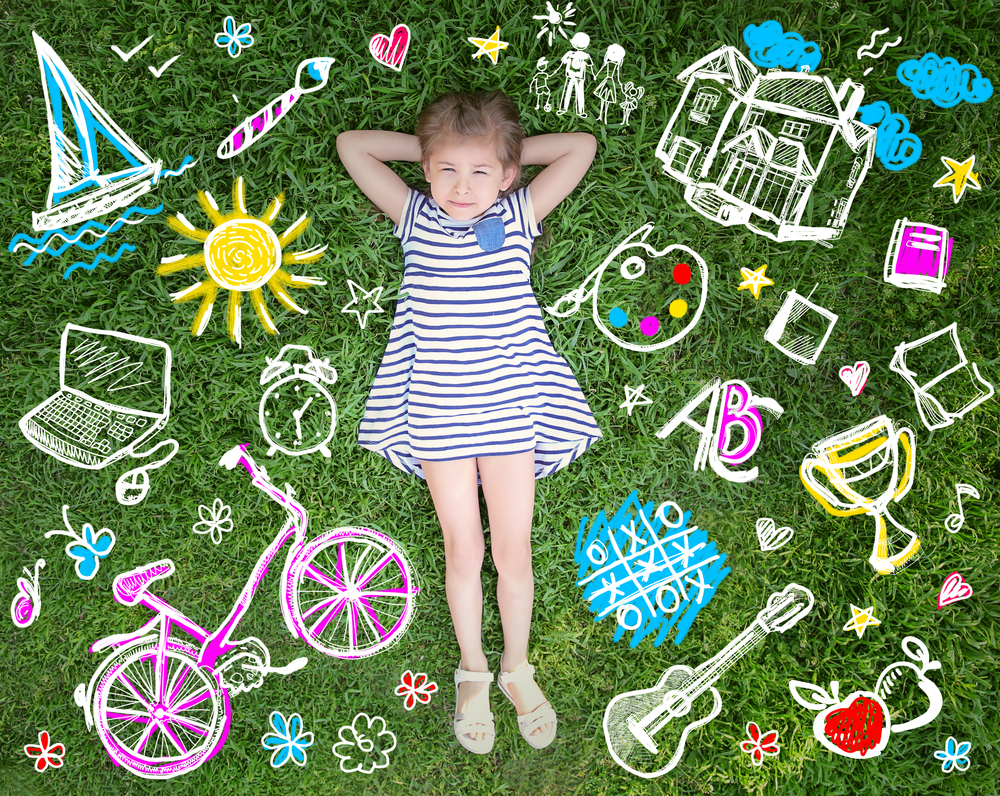
.jpg)











